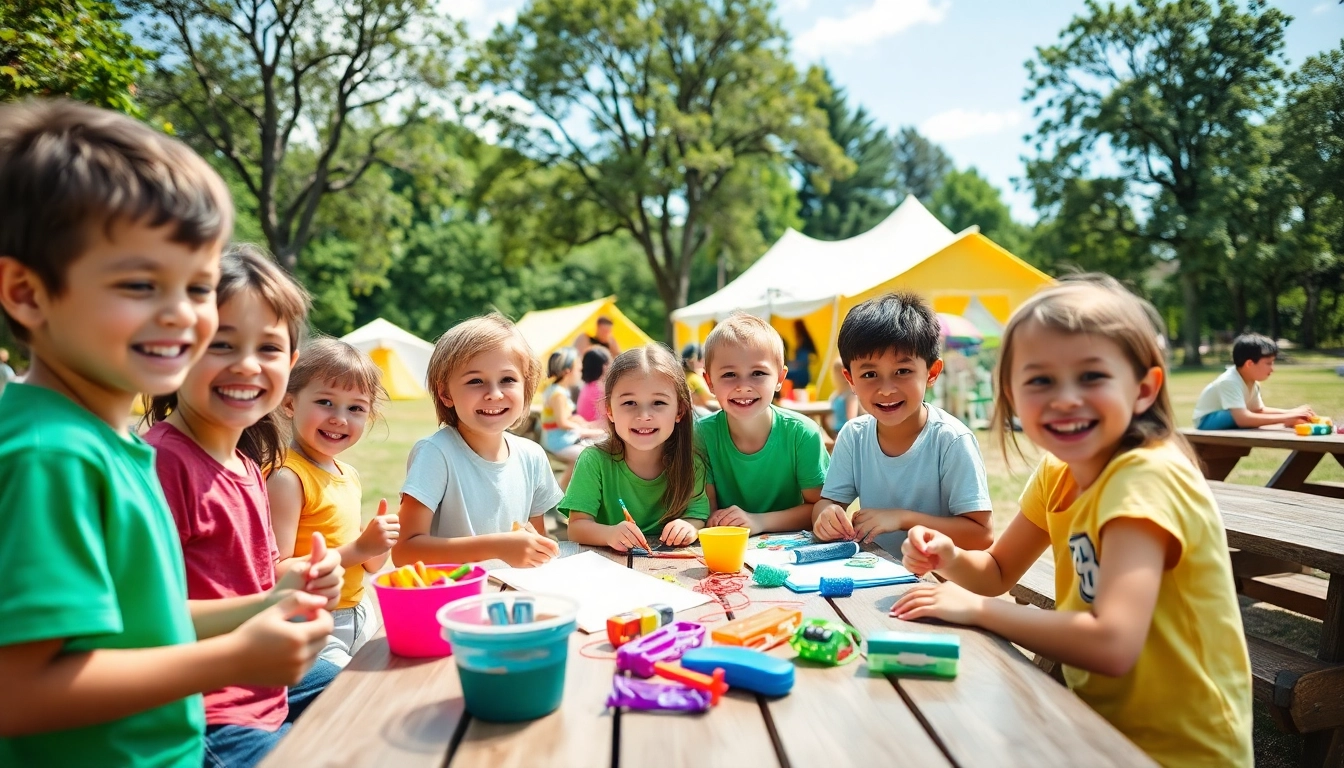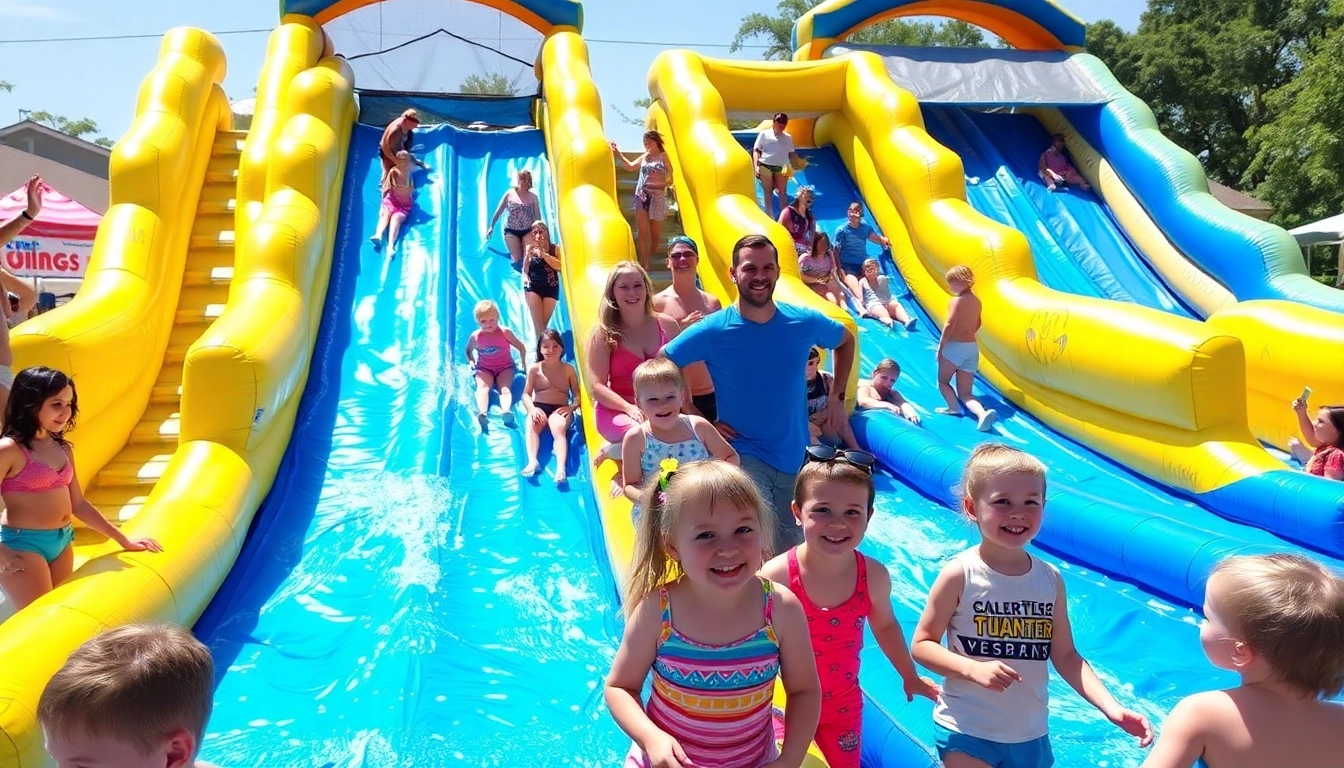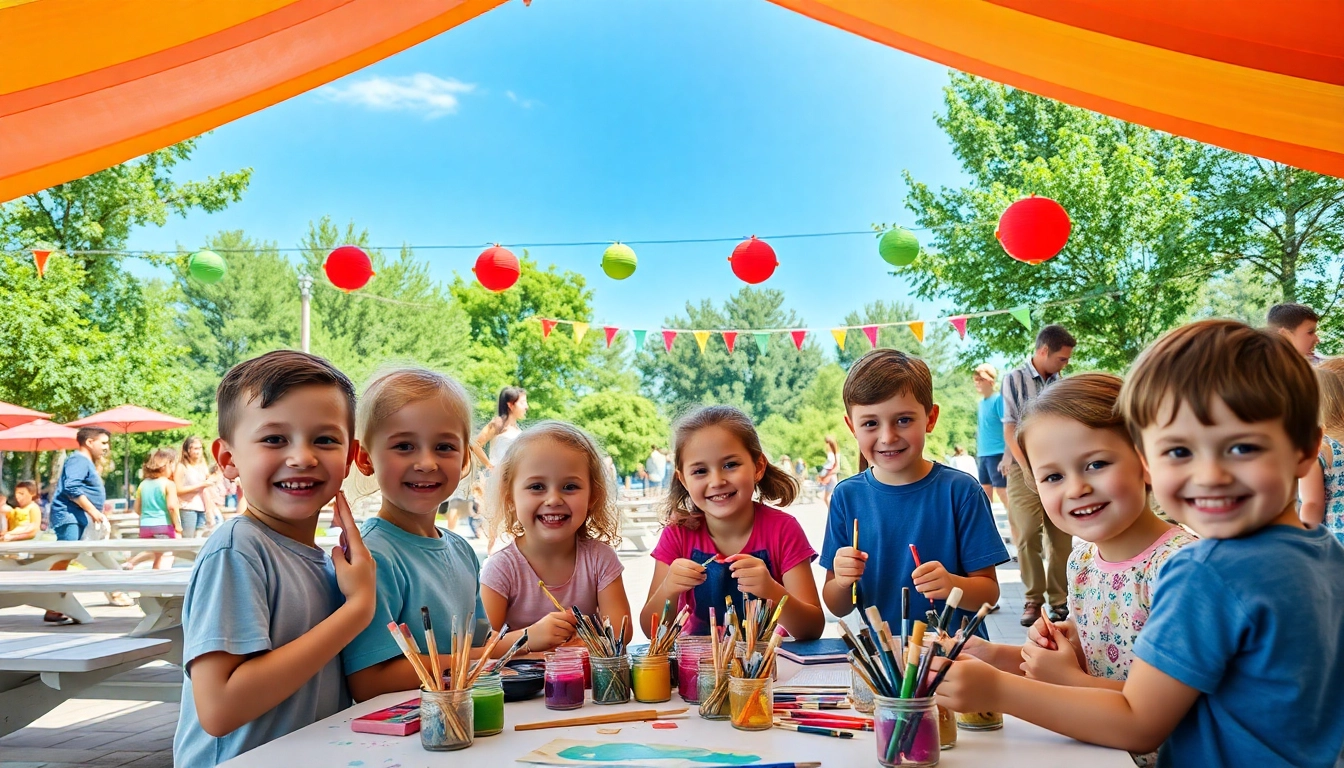Introduction to Holiday Camps
Holiday camps are a cherished tradition that provides a unique blend of recreation, education, and socialization for children and young adults. Often set in picturesque locations, these camps foster an environment where young people can explore new interests, develop skills, and form lasting friendships. With summer and various holiday breaks approaching, parents are often on the lookout for suitable options to keep their children engaged. When choosing between the myriad holiday camps available, understanding their structure, benefits, and the experiences they offer becomes paramount.
What Are Holiday Camps?
At their core, holiday camps are organized programs that provide children with structured activities during school holidays. They can range from half-day programs to week-long retreats, often incorporating themes related to arts, sports, education, and outdoor exploration. While traditionally associated with summer holidays, many camps operate during school breaks, including winter and spring vacations, ensuring that kids have a safe and engaging place to go when school is out.
Benefits of Attending Holiday Camps
The benefits of holiday camps extend well beyond mere entertainment. Here are some key advantages:
- Social Skills Development: Children learn to interact with peers, develop teamwork abilities, and improve their communication skills in an environment that encourages collaboration.
- Physical Activity: Camps often include a variety of sports and outdoor activities, ensuring that children stay active, which is crucial for their physical health and well-being.
- Skill Acquisition: Whether it’s crafting, coding, or sports, camps often provide the opportunity for kids to explore new interests and develop skills they may not encounter in school.
- Independence and Confidence: Being away from home helps children learn to manage their own needs, make decisions, and take responsibility—all of which can build self-confidence.
Popular Types of Holiday Camps
Holiday camps come in various flavors, each tailored to different interests and age groups. Some of the most popular types include:
- Sports Camps: Focused on athletic skill development in various sports, these camps often feature expert coaching and friendly competitions.
- Arts Camps: These camps encourage creative expression through activities like painting, acting, music, and dance.
- STEM Camps: Focusing on science, technology, engineering, and mathematics, these camps often incorporate hands-on learning experiences that engage children’s analytical thinking.
- Adventure Camps: Aimed at older children, these camps often include outdoor activities such as hiking, rock climbing, and survival skills.
Choosing the Right Holiday Camp
With numerous options available, selecting the right holiday camp can be challenging for parents. Here are some critical factors to consider during the decision-making process.
Factors to Consider When Selecting a Camp
When evaluating holiday camps, parents should take several factors into account:
- Location: Consider how far you are willing to send your child. Proximity can be vital, especially for younger children.
- Focus and Activities: Ensure the camp aligns with your child’s interests. If they love sports, look for camps with strong athletic programs; for creative children, an arts camp might be more suitable.
- Staff Qualifications: Inquire about staff training and background checks. Qualified instructors can make a significant difference in the camp experience.
- Camper-to-Staff Ratio: A lower ratio can ensure that each child receives adequate supervision and attention.
- Feedback and Reviews: Look for reviews from past campers and parents to gauge the camp’s reputation and quality of programs.
How to Evaluate Holiday Camp Options
Evaluating holiday camps involves a thorough examination of all the information available and possibly visiting the camp beforehand:
- Visit the Camp: If possible, take a tour of the facility. This will give you a feel for the environment and allow you to ask questions directly.
- Talk to Staff: Engage in conversations with camp leaders and counselors. Their passion and knowledge can be a strong indicator of the camp’s quality.
- Ask About Safety Procedures: It’s essential to understand how the camp ensures the safety and well-being of its campers.
Understanding Camp Pricing and Value
Cost is a significant factor for many families when choosing a holiday camp. Understanding the pricing model can help in evaluating camps effectively:
- What’s Included? Determine what the camp fee covers—are meals, transportation, and activities included, or are they extra?
- Consider Value over Price: Sometimes, opting for a slightly pricier camp can yield better safety, quality programming, and happier campers.
- Financial Aid and Scholarships: Many camps offer financial assistance or scholarships based on need. It’s worth asking about these options if budget constraints are a concern.
Creating Engaging Activities at Holiday Camps
The cornerstone of any successful holiday camp is its activities. They should not only be fun but also educational and inclusive, catering to diverse interests and abilities.
Outdoor Activities to Foster Teamwork
Outdoor activities are essential in promoting physical health and teamwork among campers. Consider the following:
- Team Sports: Organized sports such as soccer, basketball, and relay races encourage collaboration and develop sportsmanship.
- Obstacle Courses: These can foster teamwork and problem-solving as groups work together to overcome challenges.
- Camping Skills: Activities such as hiking, canoeing, and survival skills can enhance self-reliance and promote an appreciation for nature.
Indoor Crafts and Creative Workshops
Indoor activities allow campers to express their creativity and develop new skills:
- Art Classes: Workshops in painting, sculpture, or mixed media can be incredibly fulfilling for budding artists.
- Cooking or Baking Classes: Fun and educational, these classes help children learn about nutrition while creating delicious dishes.
- Performing Arts: Drama and dance workshops can boost self-esteem while allowing children to express themselves creatively.
Educational Programs Integrated into Fun
Successful holiday camps recognize that education can be both fun and engaging. Incorporating learning into activities can enhance the overall experience:
- STEM Projects: Camps can incorporate science experiments, coding, or engineering challenges that are hands-on and interactive.
- Guest Speakers: Inviting professionals such as scientists, artists, and athletes to share their experiences can inspire campers and provide motivational value.
- Field Trips: Organizing trips to museums, nature reserves, or historical sites can enhance the educational aspect of the camp.
Parent’s Guide to Preparing for Holiday Camps
Preparation is key to ensuring that both children and parents have a positive experience at holiday camps. This encompasses practical considerations and emotional readiness.
What to Pack for Your Child’s Holiday Camp
Packing appropriately can make a significant difference in your child’s comfort and enjoyment during camp:
- Clothing: Check the camp’s guidelines and pack weather-appropriate clothing that allows for easy movement and outdoor activities.
- Personal Items: Familiar items, such as comfort objects or favorite books, can help children cope with homesickness.
- Health Essentials: Include necessary medications, sunscreen, and any specific health items recommended by the camp.
Communicating with Camp Staff and Facilitators
Building a relationship with the camp staff can alleviate concerns and enhance the experience. Steps to take include:
- Introduction: Before camp starts, reach out to introduce yourself and your child. Communication is vital to ensure staff understands any special needs or concerns.
- Daily Updates: Inquire about the potential for updates during camp. This can help parents feel engaged and assure them that their child is having a blast.
Managing Expectations Before Camp Begins
Discussing what to expect can help children (and parents) mentally prepare for the experience:
- Open Conversations: Talk with your child about what camp will entail, including activities and new friendships. Encourage openness about their feelings.
- Set Goals: Help your child set personal goals for camp, whether it’s making new friends, trying a new activity, or simply having fun.
Ensuring a Safe and Enjoyable Experience
Safety and enjoyment are paramount in a successful camp experience. Parents and camp organizers must work together to create a safe, welcoming environment.
Safety Protocols and Guidelines for Camps
Effective safety practices ensure that camps are secure and sustainable:
- Emergency Procedures: Camps should have clear emergency plans in place, including medical emergencies, evacuations, and other potential crises.
- Staff Training: Ensuring that staff is adequately trained in safety, first aid, and emergency response is essential for maintaining safety standards at camps.
- Regular Communication: Keeping parents informed about safety measures reinforces trust and allows for any concerns to be quickly addressed.
Encouraging Social Interaction Among Campers
Creating an environment that fosters interaction can significantly enhance the camp experience:
- Group Activities: Organizing campers into teams for activities can promote cooperation and camaraderie, helping them build new friendships.
- Ice-Breaker Games: Implementing fun icebreakers can dissolve initial awkwardness and encourage creativity and laughter.
Evaluating the Success of the Camp Experience
At the end of the camp session, evaluating the experience can provide insights for future improvement:
- Feedback Forms: Gathering feedback from campers and parents can help identify strengths and areas for improvement within the camp program.
- Post-Camp Debriefs: Discussing the experience with your child can facilitate valuable reflections on what they enjoyed and learned.


